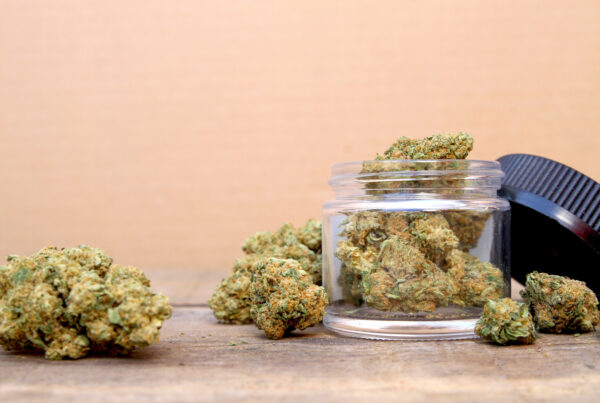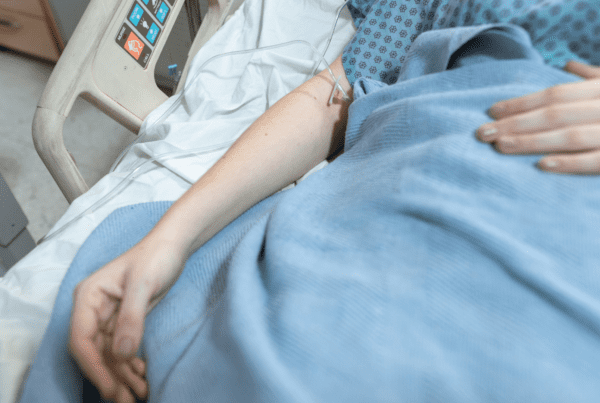Drug addiction has an unfortunately high likelihood of causing permanent damage to the body and mind – and far too often, it ends in death. The dangers of drug addiction can’t be understated, and they’re more relevant today than ever before, as an overdose without treatment is the leading cause of death in the United States for people under the age of 50.
An overdose without treatment is the main way through which an addiction will kill you. The nature of addiction is such that you’re gradually compelled to increase and increase the rate at which you consume drugs. But too much of anything can quickly become very bad – especially if it’s a bad thing.
How Addiction Will Kill You
Addiction is when the need to do something reaches a level of obsession and compulsion that overrides your responsibilities and priorities, changing you fundamentally. It’s a negative relationship where your perceived need to consume a substance or engage in certain behavior disrupts everything else. Beyond simply being immensely pleasurable, addiction is so powerful that even when someone wants to quit, they have an incredibly tough time doing so.
Therein lies the danger. The inability to stop means you keep doing it – and as the problem progresses, so do its negative effects. In other words, if you don’t stop taking drugs, then an overdose death is extremely likely – and without very conscious management, careful dosage, a reliable supply, and a load of willpower, managing your addiction to slow and reverse tolerance are unlikely.
With drug use, the body is subjected to a substance that passes through the blood-brain barrier and affects the mind. Different drugs have different ways of altering the world around us and our feelings for the world, but they all translate into some form of euphoria and contentment.
The problem with this is that it isn’t a normal state of being – and our bodies realize that. The natural reaction to a new element constantly being introduced into our system is to normalize it and reduce its effect on us. We become better and more efficient at metabolizing drugs and more resistant to their effects on us.
So, the natural response is to take more. Increase the dosage, bring back the feeling – and increase the risk of death. All drugs have negative side effects that can harm a person’s health in the short and long term. Alcohol can lead to kidney and liver failure, damage the heart, and cause death due to acute alcohol poisoning. Sedatives like benzodiazepines can slow the heartbeat, impede respiration, cause brain damage, and stop circulation. Stimulants like meth and cocaine cause long-term brain damage, stroke, and heart attack.
The list goes on.
Surviving An Overdose
An overdose without treatment does not immediately mean death – rather, it’s when a large dosage of drugs is used with drastic physical consequences. If you have an overdose without treatment, it often (but not always) ends in death.
But with the right medical intervention, an overdose can be survived. Just like heart attacks and strokes can be survived, an overdose of stimulants is extremely dangerous but not always fatal. Alcohol poisoning requires induced vomiting and is often treated with stomach pumping, careful monitoring, and a supply of nutrients and oxygen directly into the bloodstream to prevent complications and dehydration. And opioid overdoses, the most common in the country, need an opioid antagonist.
In comes Naloxone. Also known as Narcan, naloxone is an aggressive opioid antagonist. It binds to the brain’s opioid receptors, knocking opioids off it by prioritizing itself long enough to restart breathing in the body. Unlike opioids, it doesn’t induce any feelings of euphoria.
Aside from lethality, an overdose can drastically change the way you live. When the body is deprived of oxygen for a while, your organs, muscles, and nerves deteriorate. The body, low on oxygen, begins to shut down your kidneys, liver, and other bodily functions to keep the brain going – and the result is widespread damage, sometimes resulting in disability and permanent weakness, or a total vegetative state, just one step away from brain death.
Over 90 people a day die from opioid overdose without treatment. Many more survive, with debilitating life-changing consequences. The damage done through drug overdose without treatment far outweighs the deaths behind the wheel and on the road or even gun-related killings. That should help fully understand the total scope of the issue and how it affects over 2 million Americans and their families and friends. And that’s just the opioid epidemic, not the country’s full drug issue.
So yes, an overdose without treatment is very dangerous. And, given how tolerance works, you need to defeat drug addiction to prevent the chances of an overdose without treatment. So, the question is: can you stop using without treatment?
Can You Get Better Without Treatment?
The short answer is yes. It’s possible to get clean and stay clean without professional help. But that doesn’t mean it’s easy or necessary. And one way or the other, you’ll never get clean without help from your friends and family.
Drug treatment has massively improved over the past few decades, but there’s still the price issue. Many can’t afford to get treatment. However, many can, either through their finances or health insurance, but still refuse to.
Don’t refuse help. Drug and alcohol treatment can change your life, and there are dozens of therapies and treatment options to conform to your needs and circumstances and help you regardless of what kind of situation you’re going through.
Getting Help
Drug treatment can come in the form of residential treatment (rehab) or outpatient programs, which involve a facility that helps you by providing you with programs and resources to use while you continue living at home, working, and managing your responsibilities.
These programs are also great for easing back into living after rehab and help you avoid a relapse by giving you the time needed to relearn how to deal with stress and find the resilience to keep living without drugs.
It won’t be easy, but you can get sober, stay sober, and love every minute of it.
Sources:
- Reynolds D. Overdoses now leading cause of death of Americans under 50. Published June 6, 2017. Accessed October 15, 2022. https://www.cbsnews.com/news/overdoses-are-leading-cause-of-death-americans-under-50/
- ScienceDaily. Psychoactive drug. ScienceDaily. Accessed October 15, 2022. https://www.sciencedaily.com/terms/psychoactive_drug.htm
- Mayo Clinic. Alcohol poisoning – Diagnosis and treatment – Mayo Clinic. Published January 19, 2018. Accessed October 15, 2022. https://www.mayoclinic.org/diseases-conditions/alcohol-poisoning/diagnosis-treatment/drc-20354392
- Cunha JP. Narcan (Naloxone Hydrochloride Injection): Uses, Dosage, Side Effects, Interactions, Warning. RxList. Published October 13, 2022. Accessed October 15, 2022. https://www.rxlist.com/narcan-drug.htm
- Silverstein J. When an Overdose Doesn’t Kill You. Vice. Published July 4, 2017. Accessed October 15, 2022. https://www.vice.com/en/article/ywzd9k/when-an-overdose-doesnt-kill-you
- Thompson D. More than 1 in 3 Americans prescribed opioids in 2015. Published August 1, 2017. Accessed October 15, 2022. https://www.cbsnews.com/news/more-than-one-third-americans-prescribed-opioids-in-2015/





